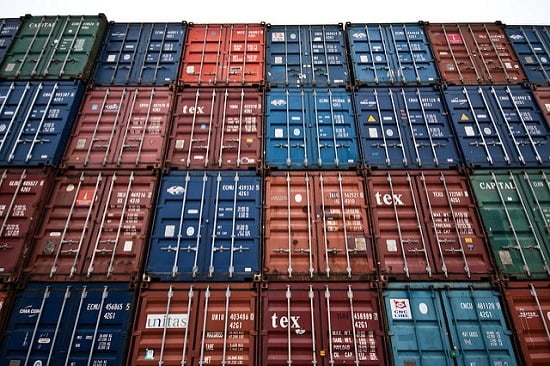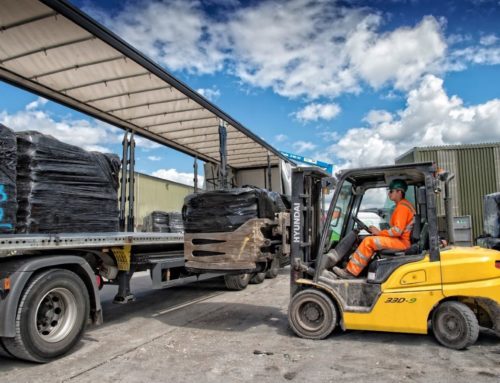by Bethany Ledingham and Ian Cessford and Peter Jones
7 minute read
Deprived of a majority by the general election earlier this month, the UK Government faces some difficult arithmetic when it eventually tries to secure Parliamentary approval for any deal on the country’s future relationship with the EU. Even if the Prime Minister can find a deal that is supported by both the ‘europhile’ and the ‘eurosceptic’ wings of the Conservative Party, it will also need the backing of the DUP – or other opposition MPs – if it is to command a majority. It is not in a position to force through whatever deal it reaches.
Does it make a ‘softer’ Brexit, which would accept more EU regulation in return for better access to the single market more likely? That approach appears to be favoured by many opposition MPs, and might allow a pathway to obtaining a majority. Or does it mean that securing a deal at all has become more unlikely?
Exporters of all kinds will be trying to work out the implications – including exporters of refuse derived fuel (RDF). Of course, the softer the Brexit, the less disruptive it will be for exports – so what might a hard Brexit mean for the RDF export industry?
Market stalls?
The UK RDF export market only came into existence in 2010, when the Environment Agency decided to permit the export of residual waste that “has undergone some sort of treatment process, and is intended for use as a fuel”. It has grown dramatically, reaching around 3.5 million tonnes in 2016. Demand for British waste grew in Northern European countries that had already invested in significant levels of waste treatment infrastructure, as they adopted policies that increased recycling and reduced residual waste, giving rise to excess capacity. Could Brexit disrupt and permanently reduce the UK RDF exports?
RDF exports have dipped slightly in recent months, but it’s difficult to attribute this to the Brexit vote directly. Nothing, practically, has yet changed in our relationship with the EU, although it may be that the uncertainty created by the Brexit process is a factor.
One thing that has changed is the value of Sterling, which has dipped since the referendum result. It’s difficult to isolate the Brexit effect on currency exchange rates from other factors, but it is plausible that has so far weakened Sterling by 10% against the Euro, with further falls in prospect unless a favourable trade deal can be negotiated. This makes most UK exports cheaper, contributing to improved UK export sales, but has the opposite effect on RDF; assuming a fixed, Euro-denominated gate fee, the cost of sending waste overseas will have gone up by at least £5 per tonne. However, we understand that many overseas facilities can operate profitably at lower gate fees, and may cut their prices if that proves necessary in order to attract waste.
In addition to Sterling’s depreciation, RDF export could be affected if leaving the EU means new tariffs apply that make it more expensive. There is little consensus on what type of trading relationship the UK should aim for with the EU, let alone what may be achievable. Unless the UK remains in the Customs Union or agrees a new trade deal, the UK’s trade with the EU will default to the rules of the World Trade Organisation (WTO). Despite any specific national interests (e.g. Sweden or Denmark’s need to import waste to fuel their incinerators, or any desire in the UK to keep more waste for domestic treatment) as WTO members the EU and UK will be obliged to apply the rules.
Good service?
For RDF, the position is particularly murky: it isn’t completely clear whether sending it overseas counts as exporting goods (that happen to have a negative value) or importing a service (that happens to be provided overseas).
For services, the relevant WTO rules are the General Agreement on Trade in Services (GATS). The EU’s GATS schedules (which the UK is expected initially to copy in order to minimise disruption) list ‘Refuse Disposal Services’ as having no current limitations on market access, though this area of work is ‘unbound’ – meaning that no formal commitment has been made to maintain an open market for these services. So, if we regard RDF exports as the UK importing a service from the EU, there would probably be no tariff (unless the UK opted to apply one).
If RDF counts as ‘goods’, the General Agreement on Tariffs and Trade (GATT) applies. The UK would probably qualify for Most Favoured Nation status with the EU; if so, the tariff for municipal waste would be 6.5% – less than the exchange rate variation the market has already absorbed. However, the EU exempts ‘consignments of negligible value’ from tariffs, with the threshold set at €150; it would appear that goods with negative value fall below this.

Whatever the Brexit deal contains, it seems unlikely to affect RDF exports. Photograph by Håkan Dahlström (CC BY 2.0), via Flickr
This issue has been considered to some degree. Norway (which is part of the European Economic Area but outside the Customs Union) exports waste to some of its neighbours, whilst also being an importer. Norwegian customs and their trading partners in Sweden and Denmark have taken the line that waste is a ‘good’; and they apply a rather complex method of determining its value, which in practice results in it having negligible value and attracting a zero tariff. It is unclear, however, whether this local interpretation of the law is definitive.
Increasingly, commentators and politicians are becoming aware that tariffs are only part of the picture. Much of the regulation that emanates from Brussels is about harmonising product standards. If in future the UK is no longer subject to EU regulation, its exports will become subject to the bigger potential obstacle to trade – ‘non-tariff’ barriers. Outside the Single Market, UK exports become subject to conformity assessments, rules of origin checks and other rules that can wrap imports into the Single Market with red tape and make them less competitive. While this is (or at least should be) a major concern for many UK exporters, it should not be an issue in the world of RDF.
As explained in Eunomia’s Residual Waste Infrastructure Review last year, EU laws on waste shipments derive from wider international agreements, principally the Basel Convention on the Control of Transboundary Movements of Hazardous Wastes and their Disposal. These agreements, to which the UK and most EU member states are independent signatories, will continue to apply to the UK post Brexit, so there is little risk that a new and more complex system of rules will be required.
Circular argument
It is difficult to know at present whether the UK will continue its commitment to improving waste management once it exits the EU. In a soft Brexit scenario, it’s likely that the EU’s circular economy package will become UK law; if there’s a hard Brexit, then the signals about the UK’s intentions are more mixed. There have been some encouraging words about maintaining high environmental standards, but much concern that, without EU oversight, they will be eroded.
Regardless of the UK’s approach, though, it appears that EU member states will be pressing ahead with the circular economy package, including the higher recycling targets that it contains. That seems likely to further reduce the amount of residual waste generated in countries that currently receive material from the UK, and their demand for UK RDF to fill their incinerators may therefore increase.
Despite the areas of uncertainty, then, it does not appear that Brexit – even in its hardest forms – is likely to result in tariffs or new rules that would be expected to reduce UK RDF exports. Whatever its implications for exporters of other goods and services, the fundamental drivers that have pushed up recycling and created the RDF export market seem set to remain in place. Of course, exports could yet go down: the UK might decide to take action to keep waste for domestic use; UK facilities may compete more fiercely on price; exports may become more difficult due to disruption at ports; or any of a range of ‘non-rational’ factors may come into play if the UK’s trading relationship with our EU neighbours deteriorates. But there is no reason why RDF exports should not continue – or even increase – in the wake of Brexit.
Bethany Ledingham and Ian Cessford and Peter Jones








Is there any effect of the Chinese waste import embargo on the British RDF and recycled waste product?
Thanks for your question. Under UK regulations, it is not lawful to export RDF outside the OECD – although SRF sales might be lawful. The UK therefore does not export RDF to China, so the import embargo would not affect the RDF market.